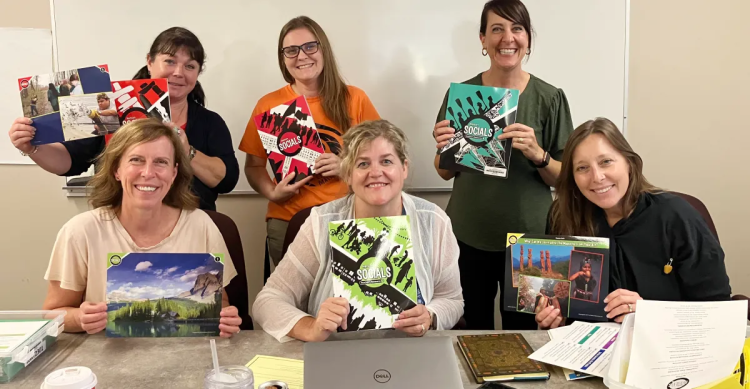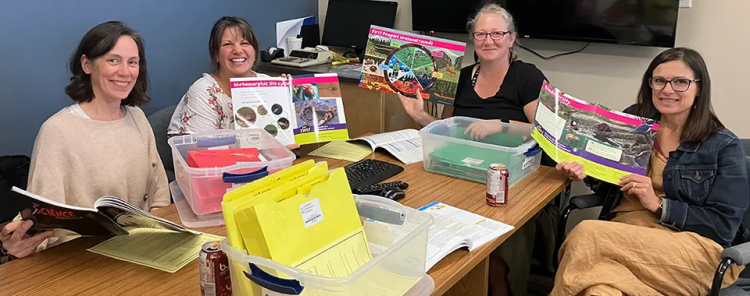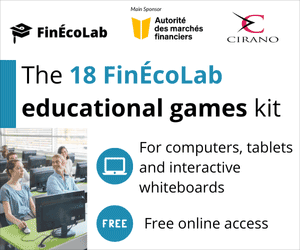Two groups of teachers in SD83 are piloting new elementary social and science resources in their classrooms.
"In SD83, we often reach out to teachers interested in piloting a resource or program before we make decisions about district-supported resources," explains Director of Instruction Jennifer Findlay. "Some recent examples of this includes pilots of Heggerty (Phonemic Awareness resources), University of Florida Literacy Institute resources (UFLI), and Mathology (math resources)."
The pilot teachers will meet several times throughout the year to share their experiences with the resources, ask questions, learn from one another, and provide feedback. Areas of focus during a pilot program can include:
- Effectiveness Evaluation: Piloting helps teachers assess whether a new resource improves student learning, engagement, or performance. It gives them firsthand experience with how well the resource fits their teaching style and students' needs.
- Identify Strengths and Weaknesses: By testing a resource in a real classroom, teachers can discover what works well and what doesn't. This allows them to fine-tune the use of the resource before fully implementing it.
- Curriculum Alignment: Piloting helps determine if the resource aligns with the curriculum standards and objectives the teacher must meet.
- Student Engagement: Teachers want to see how students interact with the resource. Does it engage them? Is it user-friendly? A pilot can provide insights into student responses and motivation.
- Feedback for Improvement: Teachers can gather feedback from both students and other educators to refine or adapt the resource, making it more effective.
- Cost and Time Efficiency: Before committing to a new, potentially expensive resource or investing a lot of time into its full implementation, teachers pilot it to ensure it's worth the investment.
- Professional Development: Piloting new resources keeps teachers updated on the latest educational tools and trends, helping them grow professionally.
Piloting the Nelson BC Socials resources is a team comprised of Megan Ollinger (Grade 1 at Bastion), Tammy Meerza (Grade 2 at Hillcrest), Susan Housden (Grade 3 at Hillcrest), Cindy Neufeld (Grade 4 at Armstrong Elementary School), and Angela Nitschke (Grade 5 at Sorrento).
The new Nelson BC Socials resources are described as comprehensive series. The goal of the resources is to help students become active and engaged citizens. Students gain the ability to think and communicate critically, historically, and geographically. Students are encouraged to ask questions to discover content through Curricular and Core Competencies. Authentic First Peoples voices are integrated from various sources. These voices offer diverse perspectives to build ways of knowing and learning from the past and present.

Front Left: Megan Ollinger, Principal Heather Gobbett, and Susan Housden. Back left: Principal Jodi Garries, Tammy Meerza, and Cindy Neufeld
Piloting the Nelson BC Science resources are Camille Kellie (Grade 1 at Sorrento), Christine Williams (Grade 2 at Bastion), and Lisa Coombs-Smith (Grade 3 at Highland Park Elementary).

Bastion Vice-Principal Megan Weir, Christine Williams, Camille Kellie, and Lisa Coombs-Smith
The resources have been built from the ground up to fully align with the new BC Science curriculum. Infused with First Peoples knowledge and perspectives, these resources are grounded in student-driven scientific inquiry. They open inquiry pathways that allow students to deepen their understanding of Big Ideas. Students develop Core and Curricular Competencies. Additionally, they build place-based and content knowledge.
- Focused on the doing of science explorations and investigations are designed to develop the skills, processes, and habits of mind of scientific inquiry
- First Peoples scientific knowledge and perspectives are woven into activities through authentic contexts designed to support learning from First Peoples
- Design-focused activities allow students and teachers to cover all Learning Standards from the Applied Design, Skills, and Technologies (ADST) curriculum
- A suite of custom-developed and modifiable assessment tools offers support. They help with the formative assessment of core and curricular competencies. These tools also assess content knowledge.
We would like to thank Director Findlay, Principals Jodi Garries and Heather Gobbet, Vice Principal Megan Weir, and Teachers Lisa Coombs-Smith, Susan Housden, Camille Kellie, Tammy Meerza, Cindy Neufeld, Megan Ollinger, and Christine Williams for their efforts in exploring opportunities to actively engage students in developing valuable skills. Their work aligns with the District's 2023-2028 Strategic Plan and supports the Intellectual Development Goal, which focuses on helping each student develop the literacy, numeracy, and competencies needed to become their most capable self.













